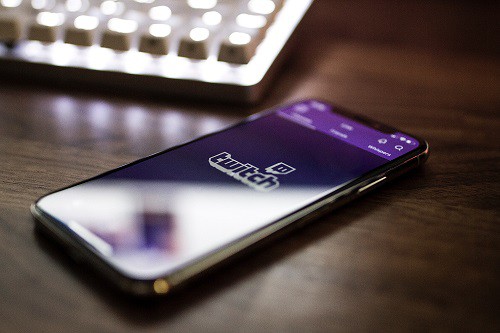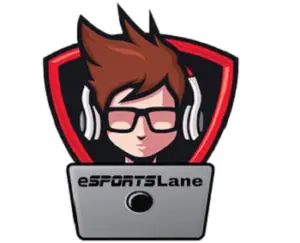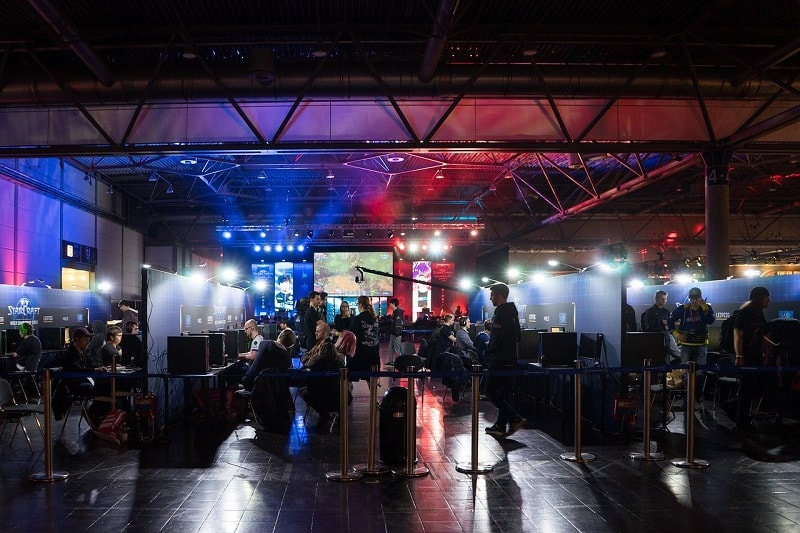With the ever-rapidly expanding eSports industry expanding its need for skilled workers, more and more universities are offering courses related to eSports. As a result, even if you haven’t made it to the top level of gaming, the opportunity to remain associated with eSports continues to grow at some pace. Below are some of the non-gaming eSports job roles you could consider if you want to remain associated with the industry and have found a late interest in it.
So which are these non-gaming job roles in eSports? Here’s a list of more than 20 job roles in the eSports Industry worth considering if gaming isn’t your cup of tea and you still want to remain associated with eSports.
- Shoutcaster/Host
- Streamer
- Coach/Analyst
- Journalist/Content Creator
- PR/Marketing executive
- Product Manager
- Sales/Partnerships Manager
- Admin/Referee
- Organisation Owner/Manager
- Community/Social Media Manager
- Broadcast/Production Crew
- Event Manager
- Publishers
- Agent
- Distribution
- Business Development
- Developer
- League and Tournament Management
- Statistician
- Lawyer
- Finance
Here’s a more in-depth definition of each role and what it incorporates.
Table of Contents
Shoutcaster/Host
One of the most important roles in the eSports planet is shoutcasting or casting as it’s often called.
A shoutcaster is an eSports commentator who is expected to call the action on a play-by-play basis or analyse it in tandem with a play-by-play caster. An analyst is referred to as a colorcaster.
There is a third role as well, an eSports host who usually isn’t directly involved with calling the action or analyzing the play but typically hosts it for those at the venue, introducing the players and sets the ball rolling for the casters to take over.
Typically shoutcasters are former gamers who understand the ins and outs of their favourite game, and add value with an excellent voice, timing and being able to articulate their thoughts in a manner which adds to the viewer experience.
Get in-depth information on exact role of a shoutcaster here, tips to become a shoutcaster here, and typical eSports shoutcaster salaries here.
Streamer
The role of an eSports streamer is typically self-employed and it refers to a gamer recording oneself live online to public audience over the various available online channels. Twitch is the most popular such platform since becoming the first ever such website to bring about a revolution in eSports streamer.
Typically all you need to get started with becoming an eSports streamer is a love for one of the more popular games and the technology – i.e. a good gaming computer system with a powerful graphics card, webcams, microphones and a solid internet connection.
Over time, with consist streaming on your own Twitch or YouTube channel you can build a growing audience and with constant promotion using other social media, one can get to a level from where one can earn a substantial income and make it a proper career for self.
Get lot more information about who is an eSports streamer here and an eSports streamer salary here.
Coach/Analyst
There is many a discussion about whether or not eSports can be treated as a sport. While there would be those on both sides of the fence for this, there is no two ways about one aspect of eSports which is no different from any other outdoor sport; the need for coaches and analyst.
While players still rule the roost because without good player, there might not be good teams but some of the best eSports teams are down to how good a coach is – and there are a few good ones out there who manage to get the team to function at a level which is better than the sum of its individuals.
Some of the main functions for a coach is to help teams perform better together rather than be individually great players, identify and work on their strengths and weaknesses, and get the best out of their ability – not too different from other team sports.
An analyst is usually more inclined towards statistics associated with the game, passing on vital information to the coach about which are the improvement areas for which individual.
A coach is a ‘how’ to an analyst’s ‘what’.
While more and more universities are now offering courses on eSports, most coaches from before do not have any set qualifications associated with them. An obvious interest in eSports is necessary but other than that, an ability to get a team together and perform to the best of their ability is a more generic trait than something related to eSports itself.
That said, if you don’t understand the ins and outs of a particular game, it’s tough to coach someone on it now, isn’t it?
More information on the exact role that a coach and an analyst brings to the table has been explained here.
Want to know more about how much do eSports coaches earn? Click here.
Journalist/Content Creator

As the industry grows, the requirement to cover eSports will keep rising, which is where more and more journalists and content creators will be needed. The trend is already headed in that direction.
So if you have a bent towards journalism or writing, and eSports is something you have had an experience with, it’s something to think about for sure.
Start off volunteering by checking out such roles online and build your portfolio, and once you have built your confidence doing that, start applying for paid gigs. While doing this, remember to build your own voice, your own brand and it will help in the long run.
To sum this up, if you are looking to dip your feet into the journalism career in eSports but are unsure and need bit of a confidence-booster, I would recommend you to read this piece here.
It speaks of how some of the more experienced sports journalists who weren’t previously connected with this field, were given a mandate to write stories around eSports and their initial struggles tackling the subject.
And it’s not just these journalists who had previously not followed eSports at all. There are those who have been associated with it for a while but even they have had to focus on just one eSport game because it’s that much more difficult to become a voice across more than one.
We have also prepared an ultimate guide for those starting out their eSports journalism career (or looking to get into it); you can access it here.
As an aside, the role of a content-creator might be slightly different in that it is less opinionated or feature-based and more a gathering and dissemination of information. Some of the articles on this blog, for instance, journalistic while others are content pieces helping a reader like you.
PR/Marketing Executive
A public-relations officer or a marketing executive is associated with most business verticals but for a green but booming industry like eSports, it becomes even more relevant. We are still in the early stages of this eSports ascent but the need to push it further, especially with a rapidly-growing competition between companies related to this industry.
A PR officer’s role is to ensure a company is seen in a positive light in the industry and improve its reputation with the rightful insight.
There is a bit of an overlap between a PR officer and a marketing executive, with the underlying principle being the same – both need to help the company grow their image.
A marketing executive would also invest in advertising, and the strategy around the target audience and use tools and medium like internet, radio and television among others to spread the word.
While the basics of PR or marketing remain the same across industries, the uniqueness of eSports demands those who have themselves been gamers in the past to fulfill such roles. Now obviously there are always exceptions, people who excel in these roles despite their background but having a strong knowledge about eSports helps no end.
As far as salaries go, people with 2-3 years of experience in PR can expect to earn about $55,000/year while it could be slightly lower for Social Media Managers (about $45,000-$50,000) of similar experience. A marketing head with 5+ years of experience could command a pay of $100,000 as well.
Product Manager
This is another fairly common role across different verticals but a very important one when it comes to the eSports industry. A product manager has an array of functions associated with his/her role, including the what, why and when of the product built by the team.
And since product managers are involved in the aforementioned roles, they are in-charge of overlooking cross-functional teams beginning with the conception of the product till it’s launched.
A product manager is involved in the vision and strategy for the product, prioritizing the ideas, converting them into features and is in charge of the product release.
According to a job advert for this role for Twitch, the role of a product manager in the eSports industry is to, “create authentic competitive gaming content and lead the player/viewer experience”.
What’s most important about this role is a Product Manager can be expected to be a passionate eSports gamer, must understand how the industry works and know about the latest games released, with an ability to understand and pick up these new titles quickly.
Similarly, a Product Manager working for PlayStation is expected to help create “great gaming experiences to players around the world”.
Sales/Partnerships Manager

While marketing is about the promotion and advertisement of the product, a sales job in the eSports industry consists of selling any product or service within the industry to garner revenues.
An eSports sales manager could, for instance, help his company sell ads. Or help generate partnerships with other players in the industry, franchise opportunities or sponsorship.
What kind of sponsorship you might ask? Brands love to get involved with most successful sporting entities but at this stage of the development in the industry, organizations at the mid to lower tier need to try and attract these brands for their ad sales to help them fund the competition.
And what does an eSports Partnership manager do? In the words of Tom, who works at Chiliz, he uses his “network and previous experience in gaming to connect with esports organisations, and work towards creating a partnership between the teams” and his own company.
Admin/Referee
A tournament admin or a tournament referee is an all-encompassing role which sees the hired person looking the eSports tournament, ensuring the rules are followed by the players.
If you follow racket sports like tennis, badminton and table tennis, each of them – and others have match umpires and tournament directors associated with them and an eSports Admin’s role is similar to the latter.
The role of a tournament director is ensuring the tournament is completed without any problems or disputes. The following of rules, handing out penalties, settling issues between teams and players would be some of the chief responsibilities of an Admin in eSports tournaments.
An admin also is responsible about knowing what needs to be done if something goes wrong. Teams using the wrong equipment? Servers giving a problem? Suspicion of match-fixing? All of this, and more would be the responsibility of an eSports referee.
Typically speaking, a referee or an admin in eSports tournaments will be a former player, or someone else from the industry itself, whose people management skills are second to none. Quick decision-making and ensuring the tournaments remain exciting without any bending of rules is the key especially under pressure.
An admin’s role needs long hours during tournaments, they need to be there from before the day begins and are a part long way after the day has ended during a tournament.
There are multiple volunteer positions in tournaments which are unpaid but help in developing one’s skills as an admin while at the junior-most level, salary begins at around $80/day. Full-time referees earn about $25,000-$30,000 each year.
Organization Owner/Manager
This is an interesting role, because it involves making decisions about the overall functioning of an organization related to eSports, like a team participating in competitions.
Hiring the right people, choosing the games to participate in, deciding the right direction and a plethora of many other tasks typically associated with the chief executive officer of a firm like getting a marketing and sales team in place, branding, financial officers and other such roles are handled as well.
This is a business role, one which people with a knack for entrepreneurship would like to take up.
One of the most important aspects of this role is the need to always have the finger on the pulse. eSports is not just a fast-growing industry but also a quickly changing one and the organization owner needs to understand the macro-level situation in the industry to be able to guide his/her company veer in the right direction.
As far as the salary is concerned, since you are essentially the owner of the organization, a lot of it depends on how well the company does under your leadership. The work hours are also long for obvious reasons.
Community/Social Media Manager

Social media forms a huge part of our lives in this day and age but even more so in live sports, of which eSports is a part. Companies looking to establish and grow their brand look at their PR team to deliver these results and social media forms a major chunk of this team’s strategy.
A community or a social media manager’s main role is to ensure the game or the tournament or anything other such eSports-related company’s community, especially online, is taken care of.
There are multiple platforms, including YouTube, Twitch, Twitter, Facebook, Instagram, Reddit and other such forms and other such social media websites which need attention from the respective fans.
The other task associated with a social media manager is to filter in the feedback from its followers and ensure it reaches the right team in the organization.
While this role might not be too different from a social media manager role in any other firm, what makes it unique is the need to understand the vernacular associated with an industry still in its nascent stages.
Broadcast/Production Crew
While broadcasting and production is an important job for all sports, it works slightly differently for eSports, making it a more specialized role. Typically the broadcasting company will look at its various aspects like cameras, light, sound, getting the set in order for hosting and the technicalities like microphones among other things.
This incidentally isn’t a standalone role but consists of a gamut of people responsibilities involved in ensuring a world-class event is delivered and you can look to get yourself involved in one of multiple ways.
You could either make a switch from having worked with the broadcasting teams in other fields or sports or start from the lower rungs of the eSports industry itself by volunteering to help out in the back-stage.
Event Manager
Event management is a very generic role which is not restricted to eSports alone. Event management companies and event managers are needed for non-sports events as well but in terms of eSports, an event manager is usually in-charge of the smooth running of an event or a tournament or a series of tournaments.
Some of the responsibilities associated with an event manager include ideating and implementing those plans, budgeting, vendor and sponsorship negotiating, logistics, attaining local permits and being the one-point contact with the senior management among other things.
Now this might not be an exhaustive list of the responsibilities of an event manager but it’s easy to get a gist of what all is required; as mentioned earlier, this role isn’t specific to someone only from the eSports industry and if you are one with excellent organizational skills, you could look at this role.
Agent
If you want to get a glamorized idea about what a sports agent does, do watch the popular, Tom Cruise-starrer Hollywood flick Jerry Maguire. It will give you an in-depth explanation about the responsibilities associated with an agent.
Player agents are very common in sports like football, soccer and basketball among others and while eSports is still a growing industry, it should come as no surprise there’s a demand for good agents in it as well.
An agent usually represents a player or a group of players, and ensures they get the best sponsorship deals out of it, takes care of the image and social media and the legalities associated with the player’s career. A bigger firm which handles this role for players could also be involved in logistics and schedule among other things.
Again, this isn’t an eSports-specific role but it’s an important one in this day and age, especially for the top-notch or potentially excellent gamers.
Agents typically have a stronger commission-based component to their salaries.
Business Development
According to Indeed.com, a Business Development manager “helps grow the business by finding new opportunities, researching leads, establishing relationships with potential clients and arranging appointments for sales executives”.
This role is especially important in a nascent industry like eSports.
A Business Development manager will typically work very closely with the sales force to ensure the vision is aligned as they look to garner more business for the company. This role also needs the person to play an important role in maintaining relationships with other stakeholders like franchises, owners and sponsors and developing growth strategy.
This is a just a small glimpse into this role which typically needs a few years of experience in the industry.
Game Developers

Each year, there are scores of eSports games that are released. And older title also get revamped. And in order to be able to do that, gaming companies need to hire tons of good quality developers and other software engineers; it’s like a smaller but a very important subset of the software industry.
From junior programmers to software project managers, there are dozens of video game design companies which put up their requirements for game development roles. Some of the top companies include Nintendo, Rockstar Games, Electronic Arts (EA), Valve Corporation, Sony Computer Entertainment, Activision Blizzard and so many others.
And these are just some of the top-end companies who hire game developers on a regular basis; there are others at the medium and lower-end of the spectrum as well, including start-ups. So if software development and design is something that interests you in the slightest and eSports is also a hobby, you could look to combine those two interests together.
Publishers
A publisher works closely with a developer or multiple developers to help see an game idea the day of light. Developers typically approach publishers with their ideas and if there’s one a publisher likes, he/she would invest money and/or time in developing it by tweaking requirements, setting deadlines and the marketing and sales associated with it.
Here’s an excellent piece on the history and differences between a developer and publisher, explaining quite beautifully the somewhat cagey relationship between the two entities.
Other Roles
Some of the other peripheral jobs associated with eSports include league managers, distributors, statisticians, lawyers and finance among others. We will look to add more to this over time as we speak to some of the people from these respective job roles in the eSports industry.
Conclusion
If you love eSports and want to remain associated with it even after your gaming is career is over, you can choose from between the aforementioned list of job profiles in the industry. You could also look at enhancing your chances of getting a non-gaming job in eSports by taking up a course in universities which are now beginning to offer eSports-related curriculum. Read more about this in our exhaustive guide to UK universities offering eSports as an option here.



